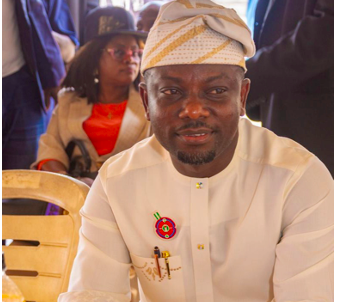By Vanessa Obioha
Globally acclaimed for its raw talent and vibrant sounds, Nigeria’s music industry navigates a crucial juncture. While its dynamic and often informal creative processes have fueled international recognition, a new research paper argues that this very fluidity now clashes with the urgent need for efficiency and scalability in the digital age. Authored by Olumide Falegan for the Pan-Atlantic University, School of Media and Communications, and presented at the recent Music Business Conference, the paper, “The Strategic Integration of Artificial Intelligence in the Nigerian Music Industry: Addressing Productivity Challenges Amidst Creative Fluidity,” identifies Artificial Intelligence (AI) as the strategic solution to propel the industry forward.
The study highlights a fundamental tension: the industry’s organic, creativity-driven nature often leads to significant productivity challenges. Key areas suffering include inconsistent data management for royalty collection, fragmented distribution channels, and a lack of professionalization in production workflows. These inefficiencies, the paper contends, are limiting the industry’s full economic potential and its consistent global competitiveness.
Falegan, a Creative Technology professional presents AI as a transformative force, not a threat. By leveraging its structured, data-driven, and analytical capabilities, AI can introduce much-needed order and predictability. Across the entire music value chain, from the initial spark of creation to final consumption, AI promises substantial efficiencies.
In music creation, AI-powered tools can act as collaborative assistants, generating melodic ideas or lyrical prompts to overcome creative blocks and accelerate early production stages. For rights management and copyright enforcement, AI can automate metadata tagging, track content usage across platforms, and enable transparent royalty distribution via smart contracts, directly combating issues like piracy and misattribution that plague the sector. In distribution, AI can enhance content review and rights verification, ensuring only legitimate works are monetized and preventing fraud. Finally, for marketing and promotion, AI provides actionable insights for audience engagement and strategic planning.
Crucially, the research emphasizes that AI is positioned to empower, not replace, human creativity. It serves as an operational backbone, streamlining routine tasks and freeing artists and industry professionals to focus more on their unique artistic expression and innovation.
Ultimately, the paper concludes that AI is a vital catalyst for sustainable growth, offering a practical framework to professionalize workflows, improve decision-making, and unlock new opportunities. This strategic embrace of technology is poised to amplify Nigeria’s distinctive creative output and solidify its position as a global music leader.

















Leave a comment